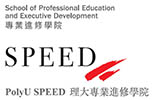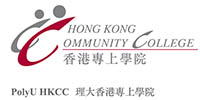雙語社評齊齊聽
[英語 (足本收聽)] Presented by Dr CHAN, Danny Weng-kit, Lecturer of School of Professional Education and Executive Development, The Hong Kong Polytechnic University
[普通話 (足本收聽)] Presented by Dr JIAO, Nina, Lecturer of Hong Kong Community College, The Hong Kong Polytechnic University
The Hospital Authority's stockpile of surgical face masks has depleted so rapidly that it will only last for a month. Scenes of people forming long queues to purchase face masks have nearly become everyday life in the city, and the problems of hoarding and price-gouging are serious. A heated debate has started over whether the government should enact legislation to regulate epidemic prevention supplies like surgical masks and to crack down on the hoarding and price-gouging of such supplies. The shortage of face masks has given rise to many sorts of disorder in society. Extraordinary times call for extraordinary measures. It is not the time to be constrained by the myths of the free market now. While the appropriateness of regulation through legislation is open to discussion, the government should at least do something about the problem rather than sit on the sidelines.
Epidemic prevention supplies like face masks and alcohol-based hand sanitisers have become the most sought-after consumer products in Hong Kong. Nearly every day there are scenes of people forming long queues to snap them up. The reserves of surgical masks at governmental and medical organisations are also running low quickly. According to the internal documents of the Hospital Authority, public hospitals have consumed nearly 30 million surgical masks in the past month, several times that of normal usage. Currently, there are only 10 million surgical masks or so in the Hospital Authority's reserves. Even if we take into account a new batch of supplies available later, the total reserves are estimated to last for only a month. The government must step up its intervention and implement effective measures to manage the supply of surgical masks and prioritise the needs of healthcare workers.
In view of situations like the hoarding and price-gouging of surgical masks, some have suggested invoking the Reserved Commodities Ordinance and putting surgical masks on the list of reserved commodities. A member of the Executive Council has also proposed emergency legislation by the government to regulate the import, distribution and retail of epidemic prevention necessities including surgical masks and to prohibit hoarding and price-gouging. On the other hand, there are also voices that controlling the prices of surgical masks will violate free market principles. Yesterday (February 10) the government said at this stage it did not have any plans to dictate the supply and prices of surgical masks through legislation, since this "could be counterproductive rather than address the problem at source, i.e. inadequate supply."
At such extraordinary times, the government should put aside its ideological burden and pluck up the courage to think outside the box. It should not submit everything to the free market. Rather, it should think more about different ways of dealing with the various sorts of disorder in society arising from the shortage of surgical masks. Allowing the situation to worsen with nothing done will only make people more nervous and discontented.
Surgical masks are in nature medical protective supplies intended for medical workers, patients and other people in need. They are not daily consumer goods for ordinary people and the global production capacity for surgical masks is limited. At present, we are nearly practising universal face-mask-wearing in Hong Kong, with a daily demand of nearly three million masks as estimated by a retailer. If masks are consumed at this pace, it is simply impossible to procure adequate surgical masks from the international market. Even if more factories are set up to increase the domestic supply, that will not help much.
Unlike sunlight or air, epidemic prevention supplies are not inexhaustible. The government and experts in the field have to make it clear to the public as soon as possible that even without a surgical mask, it does not mean the end of the world or one will be automatically infected once away from home. The primary task right now is to ensure that healthcare workers are equipped with enough epidemic prevention supplies including surgical masks. The government can join hands with local experts to release epidemic prevention guidelines to educate the public on how to use masks, which are limited, wisely. That will also help people envisage what they can do when the supply of surgical masks depletes further.
防疫物資合理管控 籌謀無口罩的日子
醫管局口罩存量急降,僅餘一個月用量,市面幾乎每天都有市民為了口罩排長龍,囤積抬價情况嚴重,政府應否立法管制口罩等防疫物資、打擊囤積抬價,惹來不少議論。口罩短缺在社會衍生不少亂象,非常時期須用非常手段,現在不是囿於自由市場迷思的時候,立法管制是否合適做法可以斟酌,然而政府至少應該有所作為,不應冷眼旁觀。
口罩和酒精搓手液等防疫用品,成為當下全港最搶手的產品,幾乎每天都有市民排長龍候購的場面。政府和醫療機構的口罩庫儲亦急劇下降。根據醫管局內部文件,過去一個月公立醫院耗用近3000萬個口罩,是平時用量數倍,現時醫管局口罩庫存只有千多萬,即使稍後有新貨運到,合計總量估計只夠一個月使用。政府必須加強介入,採取有效措施管理口罩供求,優先照顧醫護需要。
針對口罩囤積抬價等情况,有人提出運用《儲備商品條例》,將口罩納入儲備商品之列;有行政會議成員則主張,政府應緊急立法,管制口罩等防疫必需品的入口、分銷和零售,不准囤積抬價,然而亦有意見認為,控制口罩價格有違自由市場原則。昨天政府表示,現時並沒有計劃透過立法,硬性規管口罩供應和價格,因為此舉「只會適得其反,不能正本歸源,解決供應緊絀問題」。
際此非常時期,政府應拋開意識形態包袱,敢於跳出傳統思維框框,不能什麼都聽任自由市場決定。政府得多去思考不同方法,處理口罩短缺所衍生的社會亂象,任由情况惡化,只會加劇人心虛怯和不滿情緒。
口罩本是醫療防護物資,專供醫護病人等有需要人士使用,並非民間日用消費品,全球產能有限。目前香港近乎全民戴口罩,有零售商估算每天需要約300萬個,若以這種速度消耗,要在國際市場採購到足夠口罩,根本不可行,即使現在增加廠房提高本地產量,所起到的作用也很有限。
防疫物資不是陽光空氣、可以取之不竭。政府和專家需要及早讓公眾明白,沒有口罩不等於世界末日、一出街便會受感染,眼前首要任務是確保醫護有足夠口罩等防疫物資。政府和本地專家可攜手發出防疫指引,指導公眾如何善用有限口罩,讓市民心裏有底,知道在口罩供應日趨短缺下可以怎麼辦。
明報社評2020.02.11






